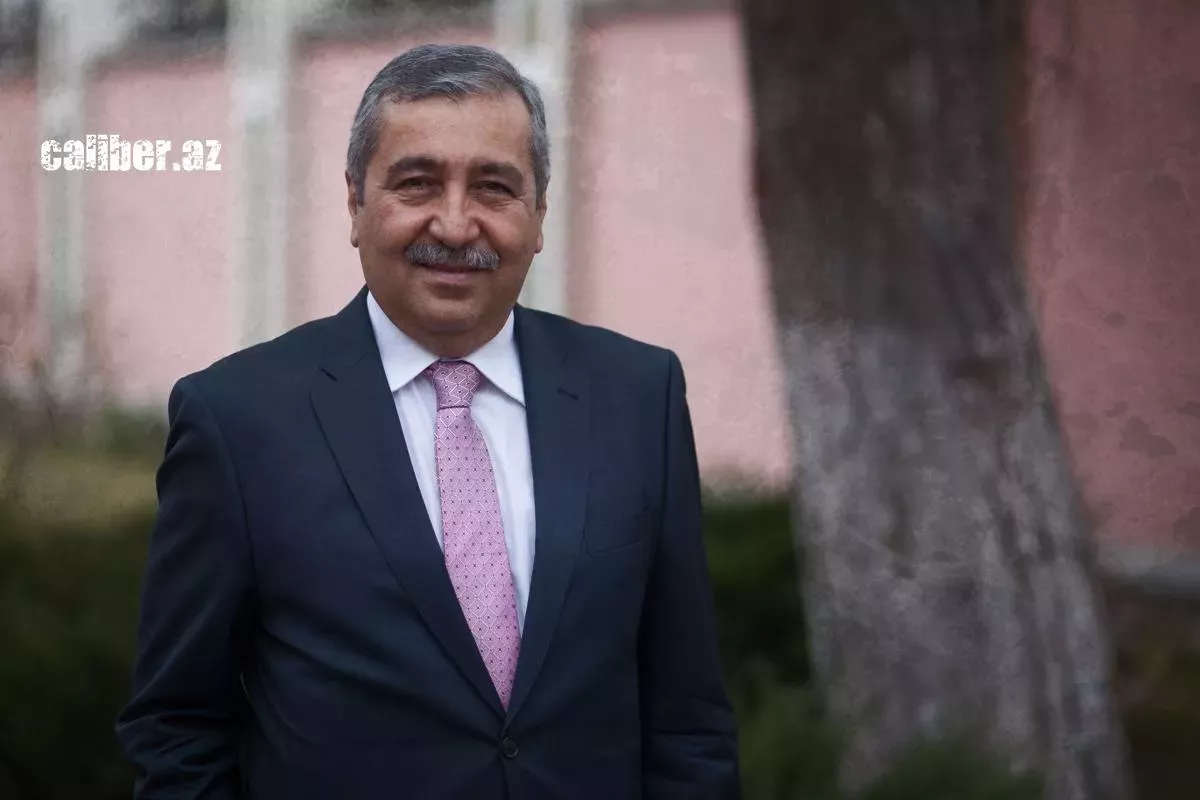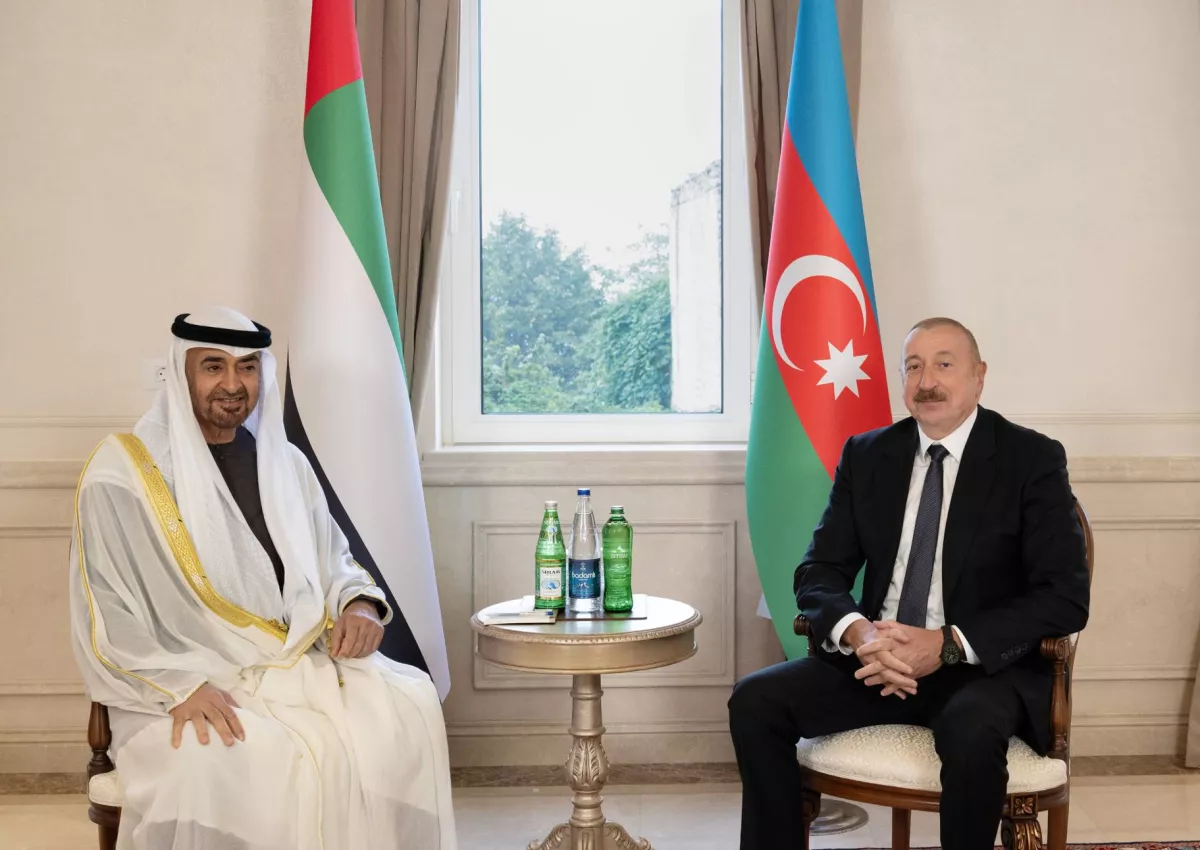Azerbaijan as a bridge between the Persian Gulf and the Caucasus Experts on the UAE president’s visit to Karabakh
The recent visit of the President of the United Arab Emirates, Sheikh Mohamed bin Zayed Al Nahyan, to Azerbaijan has attracted attention from global media, impressing foreign outlets and analysts alike with both the scale of the visit and the nature of the agreements signed. After all, it is not every day that a major Middle Eastern player like Abu Dhabi concludes such cooperation agreements.
As Sheikh Mohamed bin Zayed Al Nahyan noted in a post on his Instagram account, he was pleased to meet with President Ilham Aliyev in Karabakh to discuss the development of bilateral relations between the UAE and Azerbaijan.
"Building on the momentum of our recently signed Comprehensive Economic Partnership Agreement, we explored new avenues of cooperation aimed at driving economic development, creating shared opportunities, and supporting regional and global peace and stability," he wrote.
But what do experts think about the importance and significance of the UAE president’s visit to Azerbaijan? Caliber.Az asked Russian and Azerbaijani political analysts to share their views.

According to Middle East expert and editor-in-chief of the portal Poistine, Ruslan Aysin, considering that Azerbaijan is a leading regional actor strengthening its positions across a wider geographic scope and influencing both Middle Eastern and European affairs, many major Middle Eastern countries are beginning to show active interest in close cooperation with Baku.
"This is also dictated by the fact that the Eurasian space and the Middle East are preparing for significant transformations, possibly political cataclysms. Therefore, players are trying to secure each other’s support and find allies. The Emirates, as one of the region’s leading financial and economic hubs and investment beacons, also wants to deepen its contacts with Azerbaijan. Of course, the Muslim component is also taken into account, which is decisive in initiating such cooperation.
I think Baku has very confidently demonstrated on the international stage that it can defend its interests, positions, and sovereignty. In the eyes of neighbours and international actors, this has undoubtedly enhanced the country’s authority and sent a clear signal to the region’s major players, including the UAE.
As for the documents directly signed between the two states, including the Joint Declaration on Comprehensive Strategic Partnership, I believe they embody very serious objectives, not only of an economic but also of a geopolitical nature," Aysin said.

Meanwhile, Doctor of Law, professor, Ambassador Extraordinary and Plenipotentiary, and Head of the Department of International Relations and Foreign Policy at the Academy of Public Administration under the President of the Republic of Azerbaijan, Namig Aliyev, is confident that the visit of the UAE President to Azerbaijan was successful and marked by a series of agreements and initiatives reflecting the deepening of relations between the two countries.
"Among the important outcomes of the visit is the signing of the Declaration on Comprehensive Strategic Partnership, which demonstrates the intention of both sides to go beyond mere economic cooperation. In addition, strengthening collaboration in key sectors such as transport, energy (especially renewable energy), tourism, digital technologies, human capital development, and the establishment of a Joint Business Council will facilitate investment dialogue and project implementation. The agreements also cover the expansion of non-oil trade, growth of investment flows from the UAE to Azerbaijan, and the activation of joint projects," the political analyst noted.
In his view, Sheikh Mohamed bin Zayed Al Nahyan’s visit strengthened trust, broadened the scope of cooperation, and created new frameworks promising sustainable development of the partnership.
"The significance of this visit should also be assessed from a multi-level perspective. Its political symbolism lies in the fact that the head of one of the Persian Gulf states came to conduct talks in Karabakh, in the city of Shusha. This demonstrates that for the UAE, relations with Azerbaijan are important not only economically but also strategically, including in terms of territorial integrity and cultural heritage. The economic value of the visit is reflected in the prospects for increased trade and joint projects in energy, technology, and tourism. The signing of agreements and the creation of platforms, as I mentioned earlier, will facilitate the implementation of these initiatives. From the perspective of regional significance, Azerbaijan further strengthens its role in the South Caucasus, at the crossroads of Europe and Asia. Cooperation with a strong Gulf state enhances Baku’s authority in diplomatic and geo-economic arenas.
For the UAE, in turn, Azerbaijan can become an important bridge to the Caucasus and Central Asia, as well as to energy and trade transfer routes. Considering security and strategic interests—which include energy, transport, infrastructure, and food security—it should be emphasised that joint projects in these key areas reduce risks and strengthen resilience," the political analyst emphasised.
In his view, several factors explain why the UAE President’s visit took place at this particular time:
"For example, the strengthening of economic dynamics: even before the visit, trade between the countries was growing, and investment activity—especially in non-oil sectors—was increasing. Azerbaijan aims to diversify its economy, reduce dependence on oil and gas, and develop technology and renewable energy. The United Arab Emirates is interested in new investment opportunities and expanding its influence. Other catalysts include instability in neighbouring regions and global challenges such as climate change, the energy transition, and the need to strengthen infrastructure and logistics. In this context, a sustainable partnership with the UAE can provide Azerbaijan with resources and technological support."

Our interlocutor also highlighted several key areas in Baku’s strategy where the UAE President’s visit could have a significant positive impact.
"First, it is the strengthening of ties with the Arab world. Partnership with the UAE will help Azerbaijan enter new markets and also reinforce Baku’s diplomatic relations with key Arab states. This will contribute to regional diplomacy, security, energy, and geopolitics.
Second, it is a balance of influence—that is, the formation of an even more multi-vector foreign policy.
Third, it is image and prestige. Official visits, strategic agreements, and projects, especially in Karabakh, enhance Baku’s authority. This demonstrates that Azerbaijan is not only successfully restoring its liberated territories but also becoming an increasingly important player in global environmental, energy, and climate projects.
Fourth, it is the positioning of the country as a connecting link between the Persian Gulf, the Caucasus, and Central Asia. Azerbaijan can leverage its geographic location, logistics, and resources to become a hub in trade, transport, and energy chains.
And fifth, it is long-term security and resilience. Through cooperation in key sectors, Baku expands its capabilities, which is crucial amid global and regional geopolitical upheavals," Namik Aliyev concluded.








